Grading the 21 richest free-agent contracts signed this winter
MLB front offices have been clenching their wallets a little tighter this winter, and while many unemployed players remain on the free-agent market, some teams did pony up for the right signing.
While impending deals for Jake Arrieta, J.D. Martinez, and Greg Holland will almost certainly demand revision to this list, taking a look at the most expensive contracts inked this winter helps illustrate what an odd offseason it has been.
Eleven front offices combined to sign the 21 most expensive deals of the 2017-18 offseason, spending a total of $776 million on those contracts.
With teams exercising frugality, let's grade those deals, starting with the most expensive:
Yu Darvish
6-year, $126-million contract with Cubs
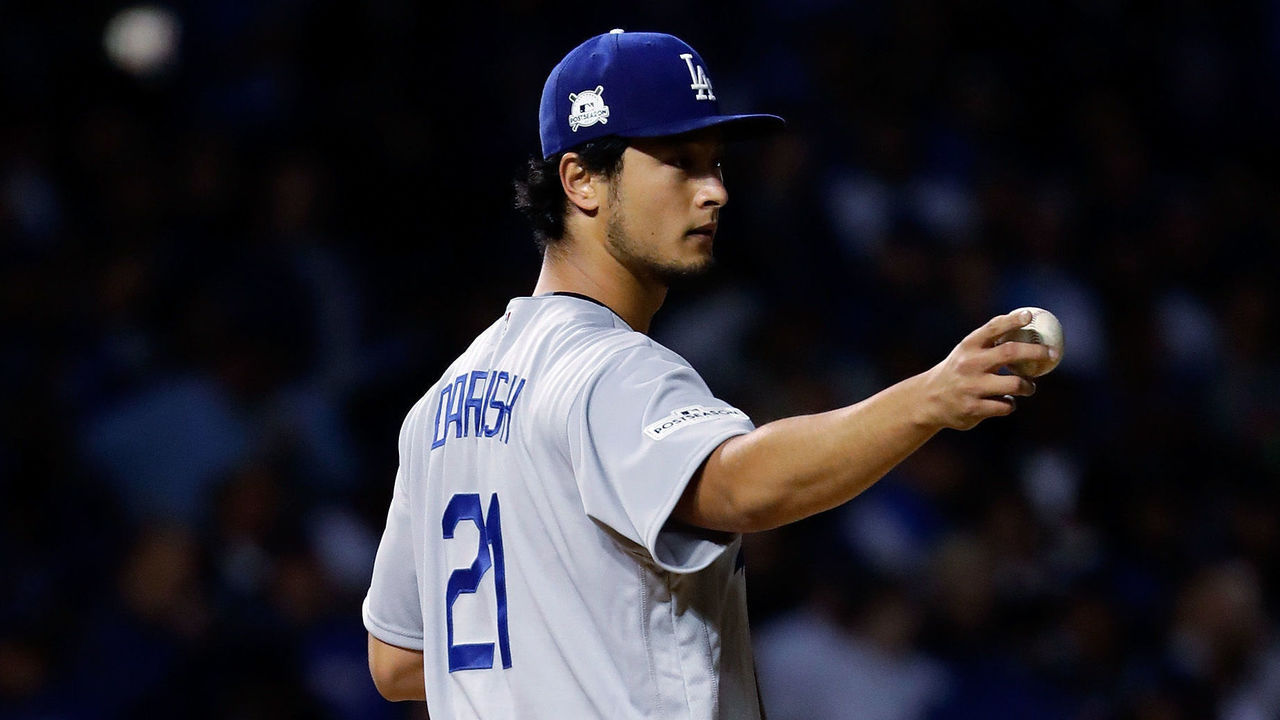
No pitcher - more broadly, no player - comes without some form of risk. However, in the wake of a $217-million deal for David Price, clubs are looking to mitigate that danger.
While Darvish isn't of the caliber that Price was considered to be when he signed his deal with the Boston Red Sox, the right-hander was still expected to land a deal with an average annual value of at least $24 million, according to FanGraphs' crowdsourcing.
Instead, the Chicago Cubs will pay $21 million per year in guaranteed money to a starter with ace potential. Darvish was the best starting pitcher on the market, and the Cubs pushed themselves into powerhouse territory with the addition. It's not cheap by any means, but Chicago probably boasts the best rotation in the National League.
Grade: B+
Justin Upton
5-year, $106-million contract with Angels
The pseudo-extension Upton signed with the Los Angeles Angels was the opening to a flashy winter for the Halos.
Throughout his career, Upton has shown flashes of superstardom, and L.A. made a significant investment in the slugger after employing him for 27 games last year.
With the benefit of hindsight, it's interesting to ponder whether the Angels got the best return on their investment by signing Upton so quickly. However, Billy Eppler certainly seems to have a plan.
Grade: B-
Lorenzo Cain
5-year, $80-million contract with Brewers
There's a case to be made that Cain was actually the best position player available on the market. Despite entering his age-32 season, his defensive acumen makes him a less risky long-term investment than Martinez.
However, it was odd that the Milwaukee Brewers, boasting some of the best outfield depth in the league, signed Cain, and on the same day they traded for Christian Yelich no less. Even further, $80 million of guaranteed money in this market is by no means a bargain either. It's not a bad deal, but the Brewers' allocation of funds this winter does raise some questions.
Grade: C-
Carlos Santana
3-year, $60-million contract with Phillies
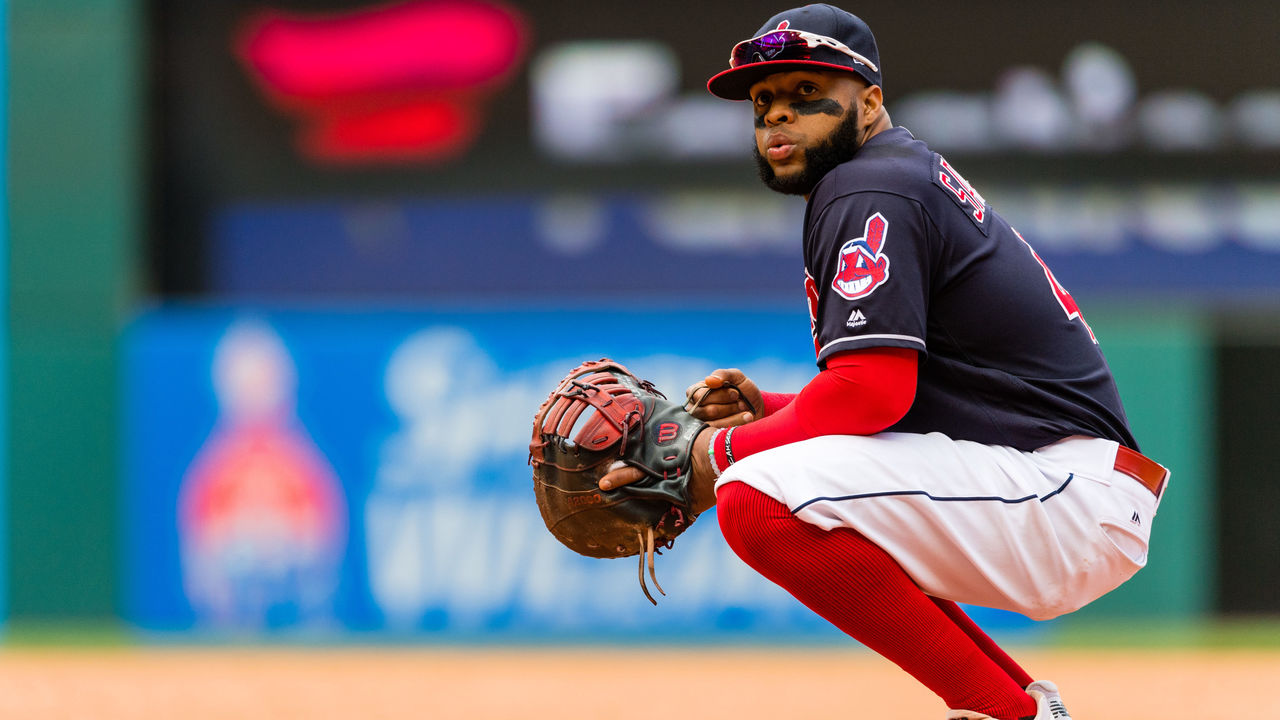
What the Philadelphia Phillies gave to Santana in average annual value is made up for in the shorter term.
Santana has routinely been an on-base wizard, and is less risky than signing Eric Hosmer for three times the money. It's a bit odd that the rebuilding Phillies are the ones to do this - particularly when rookie Rhys Hoskins seems to be the incumbent first baseman - but it does make them a better team next year.
Grade: C+
Wade Davis
3-year, $52-million contract with Rockies
Davis got the highest average annual value ever awarded to a closer, and he will buoy the back end of arguably the best bullpen in baseball for the Colorado Rockies.
As opposed to spending a lot of money on one starter, the Rockies chose to invest roughly the same amount on multiple relievers. However, it does lift the annual payroll quite a bit, and there's no guarantee that the "bullpenning" phenomenon will pan out. The 32-year-old likely isn't the pitcher he was before, and there were less expensive options available.
Grade: C-
Jay Bruce
3-year, $39-million contract with Mets
To kick off an offseason of surprisingly shrewd moves, the Mets - unwilling to concede their competitive window centered around a remarkably talented rotation - brought Bruce back to Queens without paying a premium for his resurgent 2.7-WAR campaign in 2017.
Now, if Bruce can muster even 2 WAR per season over the course of his deal, he's a source of surplus value, and if the 30-year-old can approximate the 2010-2013 version of himself - he was worth nearly 4 WAR per year over that span, averaging 30 homers, 32 doubles, and a 121 OPS+ - he'll be a real steal for the Mets, who have re-positioned themselves as wild-card contenders in 2018 (with reasons, like Amed Rosario and Dom Smith, to be optimistic for the future, too).
Grade: B+
Zack Cozart
3-year, $38-million contract with Angels
Instead of signing a third baseman like Mike Moustakas or Todd Frazier, the Angels opted to sign Cozart and shift him to a position he's never played.
While that proposition sounds risky, and would presumably diminish some of Cozart's surplus value by moving him away from a more premium defensive position, the Angels still added Cozart for much less than expected. Of course, if his 2017 season proves to be an anomaly, it could seem like a lot pretty quickly.
Grade: B+
Tyler Chatwood
3-year, $38-million contract with Cubs
Chatwood being the first starting pitcher off of the board now seems like a distant memory.
The Cubs snapped up the 28-year-old on a team-friendly deal to be a very sturdy No. 4 or 5 in their rotation. While there isn't much of a track record, paying $38 million for his prime years after a two-year breakout at Coors Field where he posted near-elite groundball rates seems like a decent investment.
Grade: B
Jake McGee
3-year, $27-million contract with Rockies
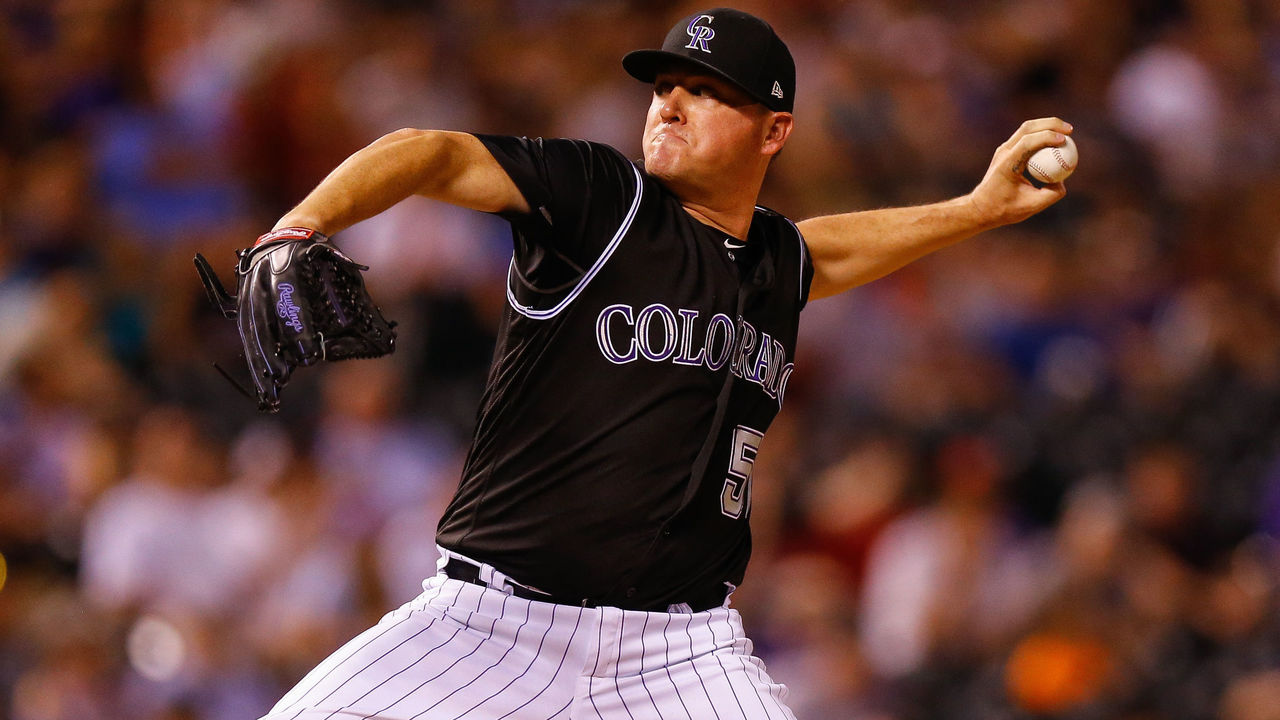
McGee came over from the Tampa Bay Rays in exchange for Corey Dickerson in June 2016, and the left-hander didn't seem to adapt well initially to the mile-high life.
However, after serving up a home run on 16.5 percent of his fly balls in his first season with Colorado, McGee lowered it to 6.5 percent in 2017, while lifting his strikeout rate by seven percentage points. The 31-year-old was unequivocally the best left-hander on the market.
Grade: B+
Bryan Shaw
3-year, $27-million contract with Rockies
An exact facsimile of the McGee deal, Shaw joined the Rockies at the same time the left-hander reunited with his old club.
Where McGee is a specialist left-hander though, Shaw is a workhorse right-hander. In the same bullpen, they'll likely complement each other, though the 30-year-old Shaw could go through a similar correction period. Further, Shaw has never been a prolific strikeout guy and he somewhat uncharacteristically suppressed home runs last year. The workload may catch up with him.
Grade: B-
Brandon Morrow
2-year, $21-million contract with Cubs
Morrow turned one effective season - though, incredibly effective - as a 33-year-old behind the best closer in baseball into an eight-figure payday to be the closer with the best team in the NL Central.
While a two-year deal minimizes risk, there is some degree of danger in working a $21-million deal for a pitcher with noted health risks off of a campaign in which he managed 43 2/3 innings in a setup role. Of course, Morrow didn't allow a single home run last year, so that works in his and the Cubs' favor.
Grade: C+
Tommy Hunter
2-year, $18-million contract with Phillies
Dishing out a two-year deal to a reliever isn't that bad. After all, it poses no long-term risk. Still, the Hunter deal has to be the worst handed out this offseason.
The 31-year-old right-hander is coming off of the best year of his career, managing a 2.61 ERA and 3.07 FIP over 58 2/3 inning with the Rays. However, Hunter owns a 4.13 ERA and 4.40 FIP for his career and is likely due for some regression, regardless of how promising his strikeout rates became. Even further, there were far cheaper contracts given to much better closers, which are still to come on this list.
Grade: D
Todd Frazier
2-year, $17-million contract with Mets
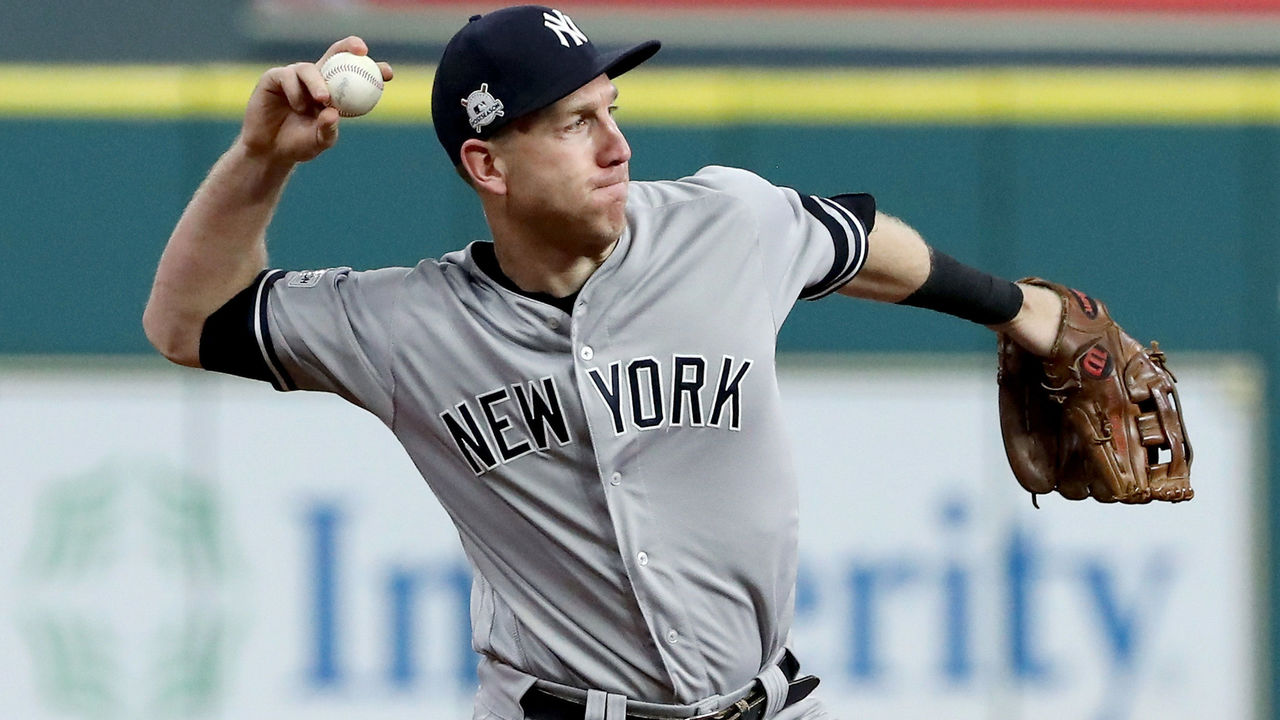
The Frazier deal may go down as the steal of the offseason; emblematic of how slow the winter progressed and how team-friendly the new collective bargaining agreement is.
Frazier, 32, has never been great at hitting for average. And despite his home run totals, he doesn't post strong slugging percentages. However, his defense is good, and his on-base percentage took a step forward last year while still showing good pop. Frazier isn't a franchise-altering addition, but he's an excellent player, averaging nearly 3.5 WAR over his past six seasons. Good piece of business from the New York Mets.
Grade: A+
Juan Nicasio
2-year, $17-million contract with Mariners
The Seattle Mariners are more than a middle reliever away from fixing their catastrophic pitching staff of last year. However, there are other factors that should be taken into account when evaluating Nicasio's deal.
The 31-year-old right-hander posted impressive strikeout numbers in 2015 and 2016, and then split time between three clubs in 2017. While his 2.61 ERA was the best mark of his career, his elite strikeout rate took a step back. As with the Phillies and Hunter, there were far better deals for far better relievers out there.
Grade: C
Addison Reed
2-year, $16.75-million contract with Twins
Where Frazier is likely the best deal handed out to a position player this offseason, the Minnesota Twins' deal with Reed is the steal of the relief market.
The 29-year-old right-hander was probably the third-best bullpen arm in a deep free-agent market this winter. Since 2013, Reed has posted a 3.17 ERA and 3.14 FIP over 340 1/3 innings. Over that time, only four relievers have thrown more innings, and Cody Allen is the only one with a lower FIP.
Grade: A+
Pat Neshek
2-year, $16.25-million contract with Phillies
Neshek was incredible last year, and the right-hander with the quirky delivery suddenly posted the best strikeout rate of his career.
In short stints early in his career with the Twins, Neshek showed an ability to strike batters out, but got away from that to mixed results through his journeyman career. Now, entering his age-37 season, there's no guarantee that Neshek will repeat the 2017 campaign in which he posted a 1.59 ERA and 1.86 FIP over 62 1/3 innings, but even if he's fractionally as good, it's a nice deal for the Phillies.
Grade: A-
Yonder Alonso
2-year, $16-million contract with Indians
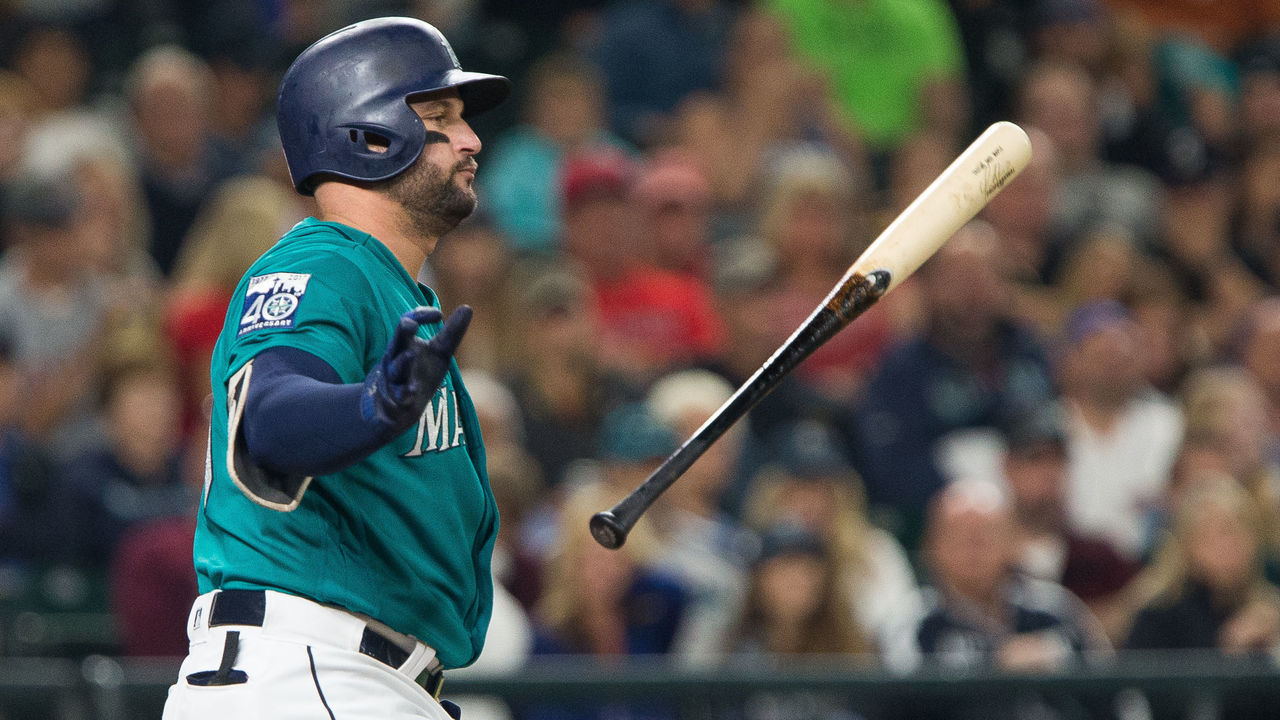
The 30-year-old Alonso is coming off a breakout campaign in which he hit double-digit home runs for the first time in his career. The first baseman collected 28 dingers in 142 games last year, after hitting 39 in his previous 664 contests.
Passing on re-signing Santana seemed to be part of Cleveland's offseason plan. However, buying in on one year of Alonso, who really tapered off in the second half of the season, may not prove to be wise. Logan Morrison is probably better and he's still available.
Grade: C
Miles Mikolas
2-year, $15.5-million contract with Cardinals
It's difficult to assess players who return to MLB after extended tenures in foreign leagues, and such is the case with Mikolas, who is returning from a three-year stay in Japan.
In his most recent season, the 29-year-old posted a 2.25 ERA while striking out a batter per inning over 188 frames. Mikolas is a nice bet to be an effective No. 5 starter, and presents very little risk on a two-year deal, despite limited MLB experience and a 5.32 ERA over 91 1/3 innings between the San Diego Padres and Texas Rangers earlier in his career.
Grade: B-
Jhoulys Chacin
2-year, $15.5-million contract with Brewers
While it likely would have made more sense for the Brewers to bolster the front of their rotation rather than the back end, Milwaukee could have done worse than to add Chacin.
Chacin, 30, isn't a swing-and-miss guy, and he doesn't suppress walks especially well, but a 3.89 ERA and 4.26 FIP over 180 1/3 innings last year makes him valuable depth for a team with October aspirations. That being said, if October does come to fruition for the Brewers, the ball isn't likely to find his hand.
Grade: C+
Welington Castillo
2-year, $15-million contract with White Sox
After an impressive 2017 season, Castillo figured to be one of the top - if not the best - catcher available on the market.
Jonathan Lucroy remaining available and Alex Avila waiting deep into the offseason to find a two-year deal alters the lens of evaluation on Castillo. While the Chicago White Sox may have been well-intentioned to snap up the catcher they wanted, paying double what Avila got with the Rockies seems steep. That said, Castillo has been sturdier behind the dish, playing more than 100 games in four of the past five seasons.
Grade: C-
Joe Smith
2-year, $15-million contract with Astros
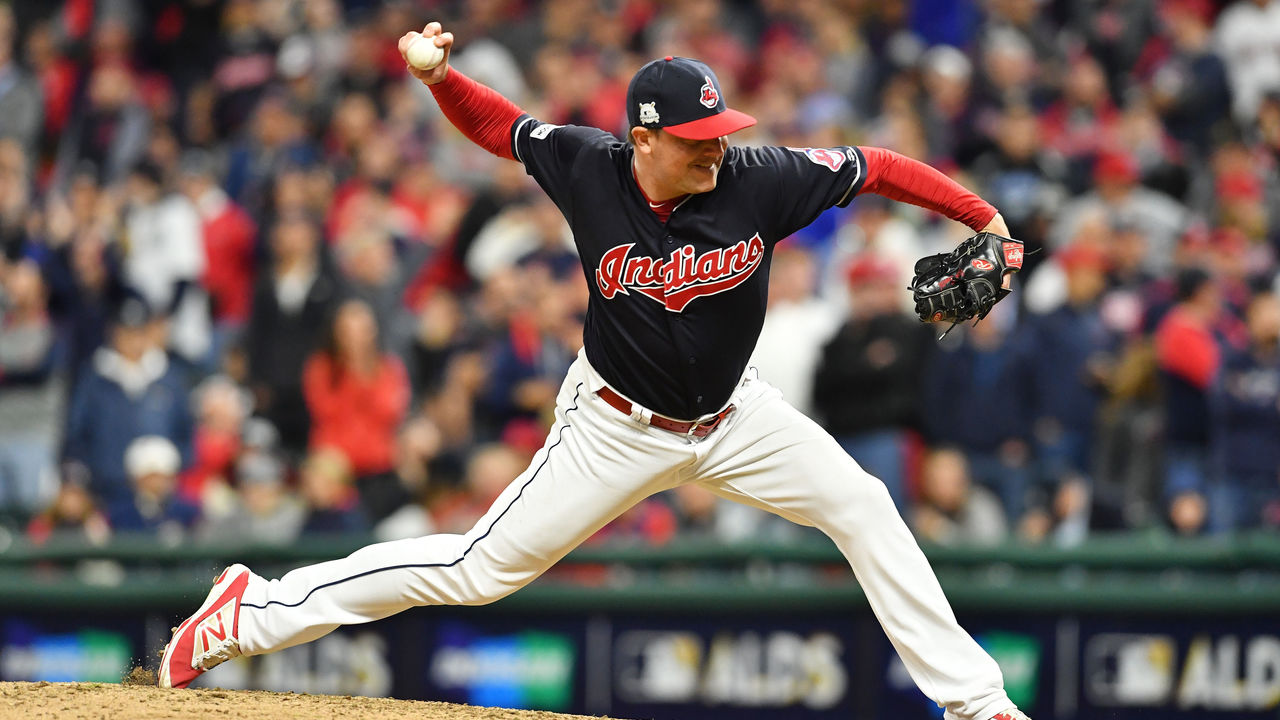
During the postseason, only one weakness presented itself for the eventual champion Houston Astros: the bullpen.
Perhaps it was just the workload for Ken Giles and Chris Devenski throughout the season that led to their October struggles, and the acquisition of Smith should help. While he's not necessarily flashy, the sidearmer's 2.10 FIP ranked ninth in the majors among relievers last year after lifting his strikeout rate by 12 percentage points over his career norm.
Grade: B
(Photos courtesy: Getty Images)